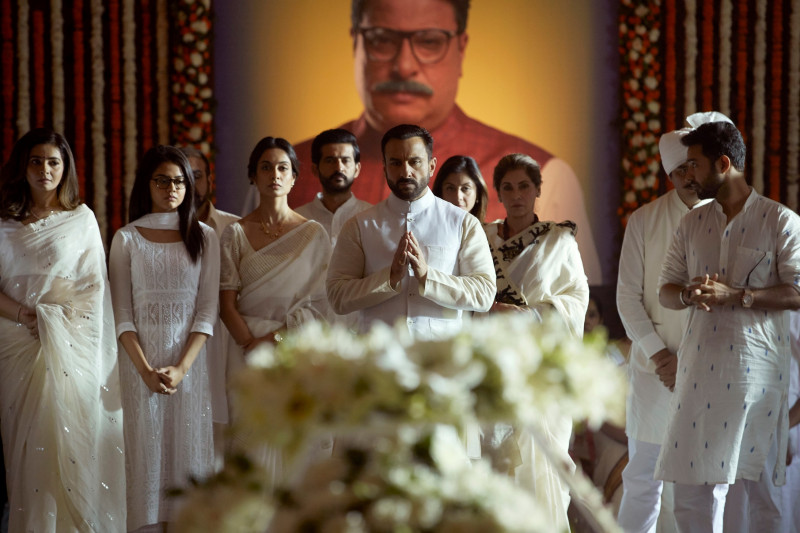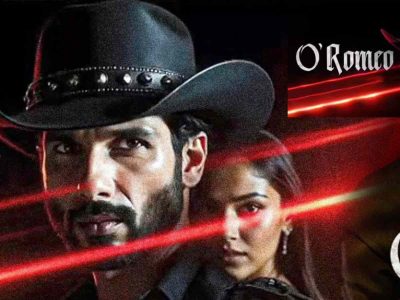What happened with Amazon Prime Video’s Tandav gives an indication of what’s yet to come
Bholenath aka Lord Shiva questions Lord Ram’s ‘popularity’ or social media reach, and wonders whether he needs to change his display picture. He further questions since when did wanting freedom ‘become uncool?’ And the place where this play seems to take place is modelled after JNU. This allegorical stage play scene is from the latest web series which might just have landed itself in trouble. Need we say more?
As you all have, I assume, already guessed that I am talking about Amazon Prime Video’s Tandav. Directed by Ali Abbas Zafar and starring Saif Ali Khan, Dimple Kapadia, Sunil Grover, among others – it’s a political drama set in the Indian landscape. Released on January 15, the series started receiving a lot of flak and boycott calls from Hindu extremists, stating it “hurts religious sentiments.”
Soon thereafter, more than one FIR has been lodged against the makers of the web series. Even UP CM’s Media Advisor Shalabh Mani Tripathi said that the show was “spreading hatred disguised as a cheap web series.” Former UP Minister Mayawati also endorsed the view that the objectionable scenes should be removed from the show.
As the heated politics surrounding Tandav continues, the makers were soon to share an apology statement in the public forum on behalf of the entire team and also resorted to deletion of two scenes, as of now. But that still has not calmed the chaos around it. Amid all this, another debate which yet again comes to the forefront is how creative freedom of OTT platforms seems to be under attack.
Needless to say, OTT platforms – unlike films and tv shows – were bringing in content never seen before. Bold language, nudity, violence – all these were used unabashedly to bring out the authenticity of the story, and not just for the sake of sensationalism. And that’s why series like Delhi Crime (Netflix), Made in Heaven and Four More Shots Please (Amazon Prime Video) found them being honoured by a platform like International Emmy Awards!
Had Delhi Crime not resorted to the visual and verbal enactment of the heinous crime, it would not have been such a hard-hitting show. Four More Shots Please depicted female desire with utmost honesty, whereas Made in Heaven portrayed its characters – be it a homosexual man or a rich, upper class family – with rawness, stripping them of their falsity. This is what sets each one apart, and makes them unique. All these resulted from the creative freedom that the OTT had.
But soon, moral policing and attacks on OTT content became a norm. A few months ago it was Mira Nair’s A Suitable Boy (Netflix) which came under attack for a scene which showed a Hindu girl and a Muslim boy kissing inside a temple. Also, calls to boycott Amazon Prime’s popular series Mirzapur came under the pretext of showing the district of UP in a bad light. Netflix’s Leila also was called out for its depiction of India in a certain manner.
Amid such an atmosphere where intolerance is rife, the film fraternity often resorts for a safer option – that is, an apology or removal of the objectionable scenes. But then what happens to their creative freedom? While films and tv shows never had any, OTT content – which seems to be the most independent of all, away from the scrutiny and filtering – is now also turning to be like them.
Many are of the view that Tandav might also be under such attack because of who plays the character Shiva – that is Mohammed Zeeshan Ayyub. He is, and has always been, vocal about his political stance and the Hindu extremist groups might not be too happy about it. But whatever the reason might be, if such incidents continue – where OTT content may need to cut down or scenes altered after such attacks, then this might as well be the beginning of the end – the end of OTT platforms’ freedom!
(Cover: A still from Tandav)




